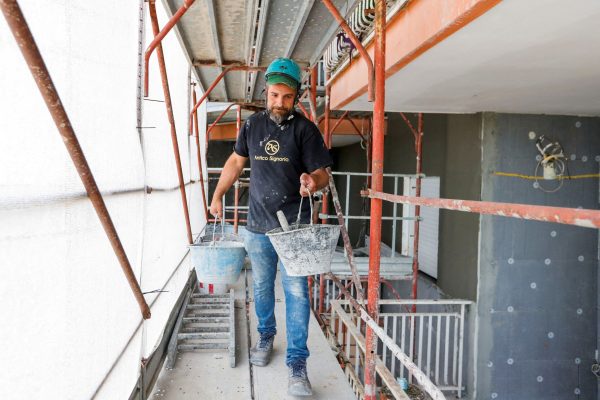On Thursday, May 9, an Italy’s Treasury official said the country has no plans to backdate before 2024 the upcoming curbs on fiscal incentives for home renovations. The government is seeking to ease fears about the impact of restrictions related to the costly state incentives.
Italy is trying to get a handle on its heavy state finances, which are under close scrutiny by international rating agencies. The government has said it needs to restrict the incentives, which have cost the state more than 200 billion euros ($215 billion) over four years.
The generous incentives, also called “’Superbonus,” allowed homeowners to deduct the cost of energy-efficient improvements from their taxes over a period of 4 to 10 years. The tax credit could be also used as a form of payment when dealing with builders or banks.
Rome plans to change the measures so people can only deduct the cost of work done over a 10-year period.
Protests from banks and businesses arose, after some lawmakers suggested the change could be back-dated since early 2023 or earlier. They said the move would devalue the tax credits they had already taken as payment.
Success
You are now signed up for our newsletter
Success
Check your email to complete sign up
However, Treasury Undersecretary Federico Freni told reporters the changes would not be backdated to before January of this year.
“So an expense made in December 2023 is not eligible for mandatory accrual over 10 years,” he said.
“The provision of the 10 equal annual installments will be an obligation and not an option for the taxpayer.”
Italy’s banking and building lobbies said on May 8 that any retroactive intervention would have the biggest impact on businesses, banks and citizens.

In March Rome blocked the option of selling tax credits stemming from building works with few exceptions, sparking protests.
Italy’s public debt is the second largest in the euro zone as a proportion of output, and is seen rising to nearly 140 percent of GDP through 2026, also due to the cost of the incentives.
Economy Minister Giancarlo Giorgetti told lawmakers during the parliamentary session the new curb will now allow Italy to restore its previous deficit targets for the next two years, which were set in September 2023.
Last autumn the Italian government promised to cut the fiscal gap to 3.6 percent of GDP in 2025 from 4.3 percent this year, and to 2.9 percent in 2026. Under current trends, the deficit is seen by the Treasury slightly higher at 3.7 percent next year and 3 percent in 2026.
Giorgetti said restoring the previous targets would require cutting the deficit by 700 million euros in 2025 and 1.7 billion the following year.
Reuters contributed to this report.







